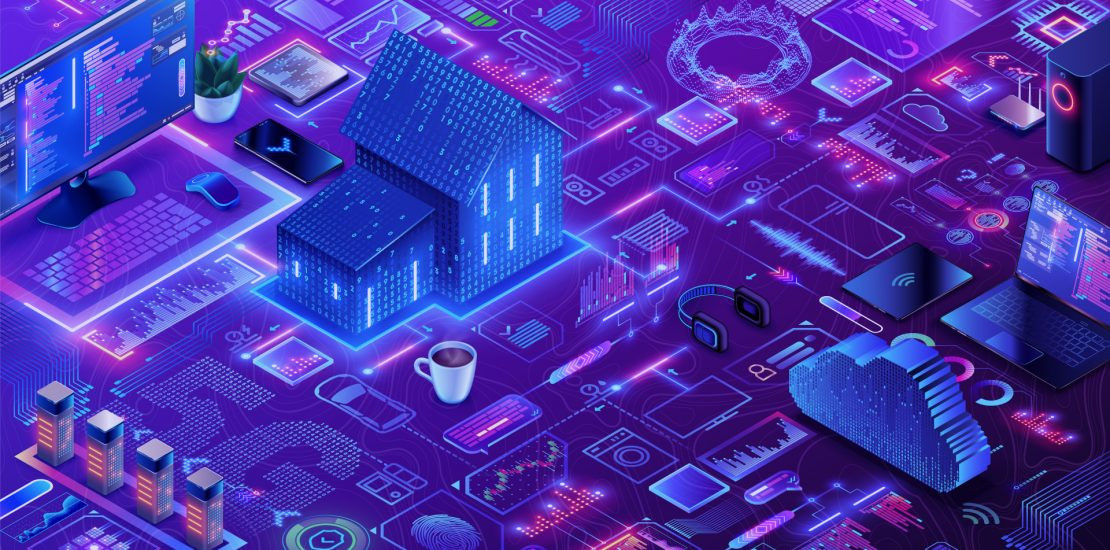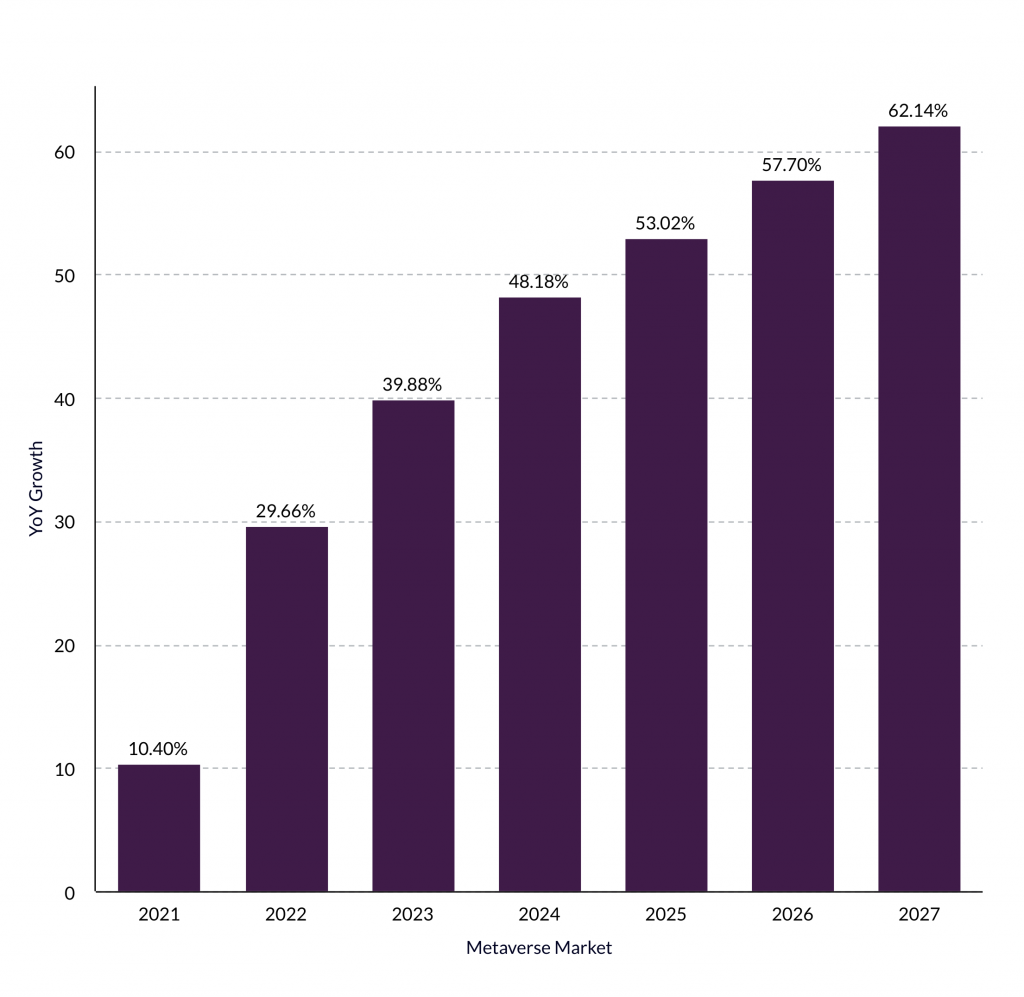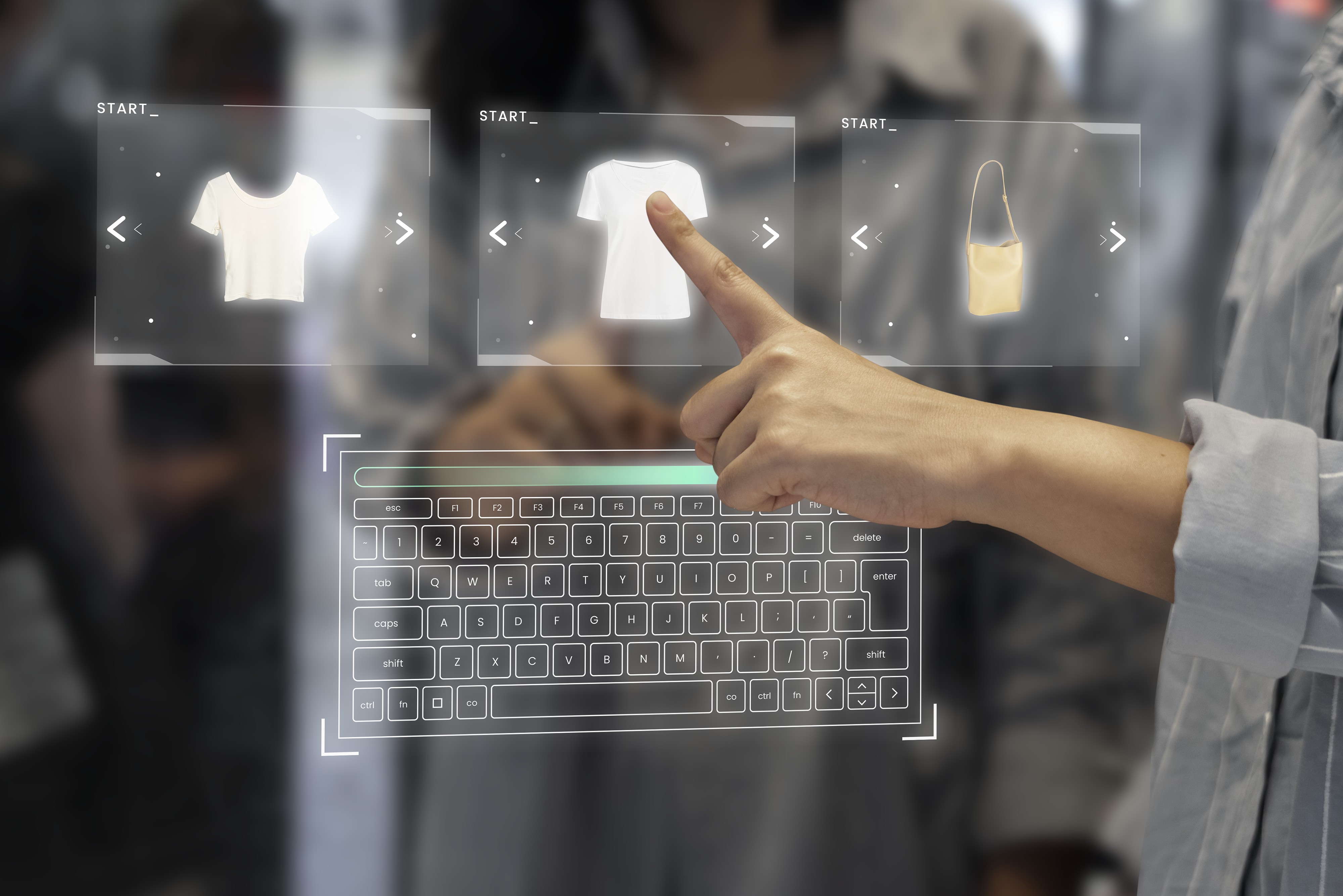An Overview
A metaverse is a digital space or world created to give an immersive virtual experience to its users. Going back to 1992, when it was first mentioned in Neal Stephenson’s novel and became popular in a few years, especially across gaming platforms, the term metaverse is no longer a new concept. It has rapidly expanded its wings to become an emerging platform for consumer trade and many other applications in various industries.
The value of metaverse lies across both consumer and business applications. Companies are implementing metaverse for various applications, including marketing campaigns, learning & development for their employees, virtual meetings and events, product development, etc. According to McKinsey, the metaverse could generate US$ 4 trillion to US$ 5 trillion of value across consumer and business applications by 2030 globally, valued at not more than US$ 3 billion.
The metaverse ecosystem comprises hardware, software, metaverse platforms, services, payments and financial platforms, and marketplaces. As per our analysis, the market size of the metaverse market is expected to grow to US$ 525 billion by 2027 from US$ 65 billion in 2022, at a CAGR of 52% during 2022-27.
Metaverse for Consumer Applications
The arrival of the internet made consumer, and retail brands build their websites, adopt e-commerce, and enter social media, live broadcasting, and several other gimmicks. Metaverse offers these brands a new concept to experiment with and build customer engagement and loyalty. Even consumers are getting accustomed to online shopping and gradually using immersive, interactive, and real-time content in their shopping experience. A new branch of commerce – eCommerce (Immersive Commerce) is becoming our next reality.
There are various ways how the metaverse is being implemented for consumer applications:
- Gamified Commerce: Metaverse has its biggest foot in the gaming field with billions of users. Having realized this potential market niche, many brands are teaming up with these gaming platforms to showcase and sell their products. Some of the early adopters are Gucci, Burberry, and Louis Vuitton.
- Reinventing Marketing: Apart from selling the products, metaverse has opened plenty of ways for the brands to promote their products, increasing customer engagement and brand loyalty. It also opens additional markets and a new customer base to target and enter. The most popular and effective examples of this are Wendy’s and Coca-Cola.
- Merging Physical and Virtual Worlds: Metaverse is gradually changing the business models of the retail and consumer industry by merging physical and digital versions of stores and campaigns. This so-called ‘Phyigtal World’ concept is exactly what the future of retail will look like. Many brands, such as Nike and Balenciaga, are already experimenting.
Metaverse for Business Applications
Apart from gaming, social networking, remote work, and commercial applications, the use cases of metaverse for business applications are increasing daily, and manufacturing is no exception. The manufacturing world is constantly changing, with continuous technological advancements (such as IIoT, 3D printing, cloud computing, AR/VR, etc.) coming their way. Now, immersive virtual environments that can be viewed on any device and operated remotely are the future of the industrial sphere, enabling more meaningful collaborations and user-friendly experiences. Virtual reality and simulations started merely in gaming platforms have advanced themselves to find their utility beyond gaming into manufacturing, shaping the future of factory work. Companies such as NVIDIA (which has created its OmniverseTM platform) and Unity are the perfect noteworthy examples for this case.
Below are some of the applications of a metaverse in the manufacturing world:
- Virtual Factories: Virtual factories offer advantages that help the company save time, labour, and cost. While the physical factory will have to shut down to make changes in the factory settings, such as adjusting pressure, temperature, etc., the virtual factory can instantly change these settings without shutting the operations. A few leading automotive OEMs, including Hyundai and BMW, have planned to develop virtual factories using the metaverse platform.
- Simulations: With better virtual spaces for simulation, it is possible to quickly assess how the existing floor plans and designs will impact and improve the production process. It ultimately saves the company time and cost in actual physical testing and trial runs. The result is a more rapid production process. BMW is an apt example of this.
- Rapid Product Development: The metaverse combines more real-time 3D modelling tools and the virtual space, accessible to all project stakeholders. Several other CAD applications and simulation tools make product designing and development more collaborative and faster, with product designing, client feedback, and quick reworks happening in real time. The virtual space also allows companies to test various production processes for manufacturing a particular product and find the optimal one before implementing it. It saves much time for the company, reducing the production lead time.
The Road Ahead
The metaverse state looks like the internet in the 80s. It has a long way to go. However, it will not take too long as technology advances very fast. Soon, the metaverse will be developed fully for its applications in wide-ranging areas such as the hospitality industry, eCommerce, smart contracts for deposits in the financial sector, podcasts (ownerships, investing along with various perks and exposures), real estate, Decentralized Finance – DeFi (Metaverse based lending, borrowing, trading and investing), and for marketers and event organizers by transforming concerts, art festivals, sporting events to into digital experiences in metaverses. Possibilities are going to increase only. Brands will have to look for ways to engage with clients to increase profits in future. It is wise for businesses to adopt some metaverse-appropriate strategies now as the early starters reap the maximum benefits. One such way is knocking at our doors. Those on board will be granted a bundle of endless possibilities in the era of Web 3.0.







